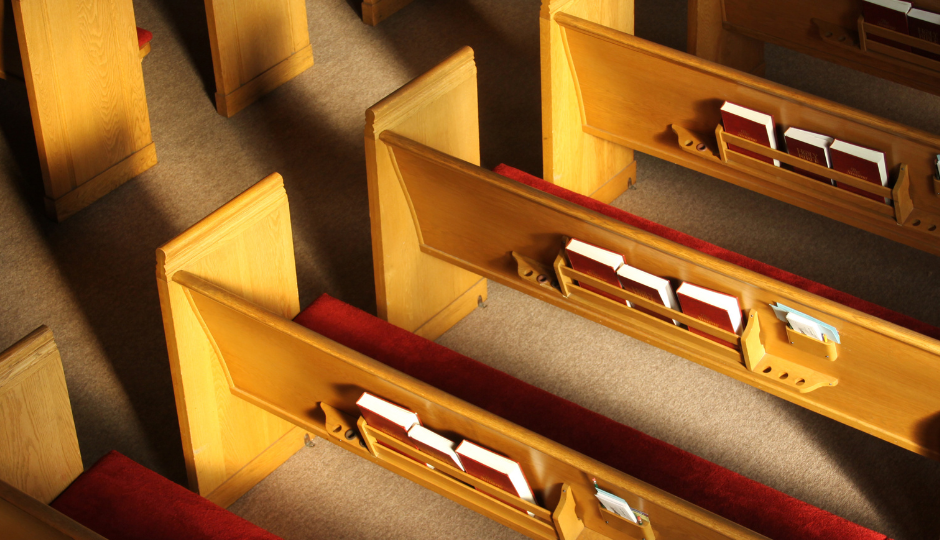
I have a complicated relationship with the church. I am a pastor’s kid, so I’ve seen the unattractive parts of church life. When one pastor I met learned I grew up in ministry, he called me out. He told me, “Every time you step into a church, you probably judge everyone there, analyze every part of the service, assume the worst of the elders, and struggle to genuinely worship.” I stood there dumbfounded by how he diagnosed issues with my heart that I didn’t even realize I had. The truth is, my family has been hurt by the church. The personal attacks, the splits, the slander, the financial struggles, the loneliness—I’ve seen it all. And it eventually made me bitter and angry with God.
Thankfully, over the past year, God has revealed the ugly, sinful ways I failed to trust him. Thankfully, he used Reaching & Teaching’s Practicum—during which I spent six weeks in Peru—to grow my love for the church by displaying how God redeems brokenness for His glory.
The Build Up
My journey began months before I left. Every student in the Practicum was asked to read No Shortcut to Success. In this book, Matt Rhodes connected the work of missions to the local church. Even more powerfully, he displayed the danger of missions work that is disconnected from the local church. You cannot find a shortcut around the local church in ministry.
While I know this, I often struggle to believe it. When Practicum students arrived in Atlanta for three days of training, every session, every conversation, and every speaker celebrated the local church. Reaching & Teaching insisted that it works alongside local churches. As I heard church-centered talk after church-centered talk, I realized God was exposing my unbelief. I realized God uses imperfect churches in profound ways for his glory. My heart was being primed and shaped for what was about to come. Our training gave me the understanding to interpret what I was about to see in Peru.
The Adventure Begins
Most of my time in Peru was spent getting to know the leaders and members of the local churches in Tacna. Following one Sunday service, I had a thirty-minute conversation with a man named Luciano. I speak very little Spanish, and Luciano hardly speaks any English. By almost every stretch of the imagination, Luciano and I have nothing in common. The amount of effort any communication takes seemingly diminishes any utility that could come from a conversation.
Nevertheless, our conversation got some traction through an English/Spanish translation of the Bible. We started in Genesis and talked about God’s faithfulness; we went to Romans and talked about the cross; and we finished with Galatians by talking about the unity of the body in Christ. At the end of the conversation, Luciano said, using Spanish and English words, “Thank you, Jesus, por la cross.” The church and the cross took two people with nothing in common and unified us. I became quite close with Luciano during my time in Peru because, despite our differences, God is forming us both into his image.
The more I became involved in the local churches, the more I saw the flaws and imperfections that are apparent in every other church I have been in. I found this fact to be strangely comforting. God is committed to the exaltation of His glory, and He has chosen local churches to reflect that glory as the gospel is proclaimed and disciples are made. Man’s sinfulness magnifies God’s patience, grace, and power. We can trust God because he has proven that his greatest masterpieces are built with broken materials.
Before the Practicum, brokenness in the church led me to bitterness and frustration. I was too man-focused. Now brokenness leads me to worship and wonder at the power and wisdom of God. Only He God can redeem a room full of sinful people and turn them into a family.
Beautiful Churches Don’t Just Happen
Near the end of my trip, I began reading Scott Sauls’ book, Beautiful People Don’t Just Happen. Isn’t the same true about the church? If beautiful people are created through pain, brokenness, and perseverance, then so are our churches.
Only a great God can use a church that looks so broken to build a kingdom of worshippers from every nation and tribe. When I am asked to “explain the gospel in five words,” I always respond with “brokenness redeemed for God’s glory.” Somehow, my heart has always been too hard to realize that God is actively doing that in the church. It reminds me of the words of 1 Timothy: “But I received mercy for this reason, that in me, as the foremost, Jesus Christ might display his perfect patience as an example to those who were to believe in him for eternal life” (1:16).
I aspire to ministry, but I am still unsure what that will look like. Whether I pursue missions or not, I have a greater desire to see the gospel made known through the local church. I want to fund, mobilize, and support missionaries. Who knows, maybe I will be the one who needs that same support one day.
I’m incredibly thankful for the Practicum and the opportunity I had to see the church in a different culture. It has given me a bigger view of God, which has grown my trust in His sovereignty. The Practicum grew my love for the church by displaying how God redeems brokenness for His glory.
Want More Content Like This?
We will deliver Reaching & Teaching articles and podcast episodes automatically to your inbox. It's a great way to stay on top of the latest news and resources for international missions and pastoral training.
